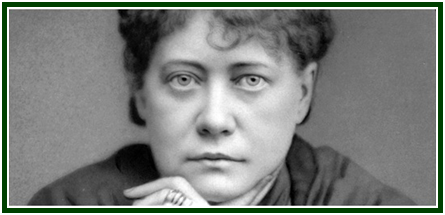Past, Present and Future
Are But Aspects of Eternal Time

* The act of making an intense effort stimulates one’s soul, and tranquillity and repose are also necessary. Wisdom is seldom in a hurry.
* We may seek for peace and quietness, and quietness sometimes seeks for us. There are, during each yearly cycle, a few occasions when the truth-seeker feels he deserves some days of slowing down the rhythm of outward actions. This is a time to expand his ability to directly listen to the silence. An occasion to learn from that level of the sacred world where physical sounds are but unnecessary noise. On this layer of perception all lessons are wordless, for they don’t come from the outside: they emerge naturally from within one’s soul.
* There is something we must remember every day: if the goal of the pilgrim is noble, the purpose of obstacles is to strengthen his will. Difficulties teach him to develop the power of his patience, and make him learn to identify valuable opportunities where previously he saw nothing. When the lower self feels limited, it is easier to transfer the focus of consciousness to higher planes of awareness. While the lower self may be hampered, the spiritual soul remains free under any circumstances.
* It was only due to his naiveté and his remarkable lack of information about the Law of Karma that the Indian guru Jiddu Krishnamurti taught people to despise the History of nations and their cultural traditions, and to consider ancient religions useless. Only gravely misinformed theosophists can believe Krishnamurti is a source of inspiration. (See Krishnamurti and Theosophy and The Making of an Avatar.)
The Ability to Learn from the Past
* Among the flowers of modern collective ignorance disguised as spiritual knowledge, we see today the craze around the so-called “cancel culture movement”; the militant denial of the past, with its absurd demands for people to accept the fancy according to which the historical past does not exist, or is irrelevant.
* Contempt for the past is a fatal mistake. It is also a form of denial of culture and an attempt to destroy the very foundations of social coexistence. The structure of human cooperation is a concrete product of history. In other words, cooperation among humans is the natural and gradual result of the previous steps in our evolution.
* Anyone who deliberately ignores the experience of earlier centuries is doomed to repeat some of the worst mistakes ever made. But he who learns from the failures and successes of previous generations can improve himself and also help regenerate the society in which he lives.
* Past, present and future are mere aspects of eternal time. Our past contains the healthy seeds of the future that must be built.
* Respect for the past means respect for previous generations, but it also leads to friendship for the future inhabitants of our planet.
* We ourselves and our friends will be born again on Earth. Time is One, and it is limitless. There is no “present moment” separated from what has happened, or from future centuries.
On Helping and Being Helped
* Some people think that by getting more involved in external circumstances they will better control that which is important for their own happiness and contentment. They then get attached to all kinds of illusory facts, including material possessions and social position.
* By attempting to reform the circumstances, they forget to improve themselves. In fact, although circumstances are important, managing them is not enough. The way to contentment consists above all in improving oneself, not in promoting external changes.
* Selflessness means freedom.
* The alchemy necessary to know oneself and to improve oneself includes being helpful to others and to communities, with no expectations as to have control over changing circumstances.
* In Theosophy, the actual process of being helpful, as well as of being helped, is rarely visible. It is mainly anonymous. It often occurs in imperceptible ways. It flows on the level of the spiritual soul.
* Do you know someone whose behavior is dishonest? Remember these words from Swami Sivananda: “No man is absolutely bad. Everyone has some good trait or other. Develop the good-finding nature. This will act as a powerful antidote against the fault-finding habit.” And Sivananda proceeds: “Even a rogue of the first order is a potential saint. He is a saint of the future. Remember this point well. He is not an eternal rogue. Place him in the company of saints. In a moment his pilfering nature will be changed. Hate roguery but not the rogue.” [1]
NOTE:
[1] “Sadhana”, a book by Swami Sivananda published by The Divine Life Society, Himalayas, India, eleventh edition, 2019, 702 pages, see p. 131.
000
The article “Thoughts Along the Road - 93” was published on the websites of the Independent Lodge of Theosophists on 17 February 2026. An initial version of it is part of the April 2023 edition of “The Aquarian Theosophist”, pp. 10-12.
000
Visit the channel of The Aquarian Theosophist on YouTube:
000
Read more:
000

Helena Blavatsky (photo) wrote these words: “Deserve, then desire”.
000






